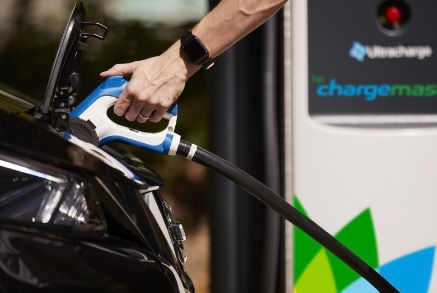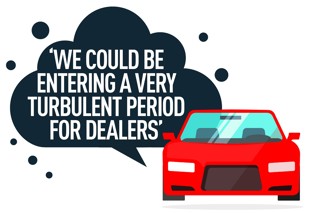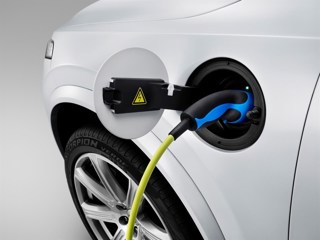Government has wants 70% of new cars sold annually to fall into the Ultra Low Emissions (ULEV) category by 2030 as part of its Road to Zero strategy.
Plans to drive the adoption of electric vehicles (EVs) and efficient plug-in hybrids were published by the Department for Transport (DfT) today and detail a concerted effort to accelerate the growth of the UK’s charging infrastructure.
Among plans outlined in the strategy is a push for charge points to be installed in new-build homes and for new lampposts to include vehicle charging points.
The Government’s plan will also see the launch of a £400 million Charging Infrastructure Investment Fund to help accelerate the roll-out of charging infrastructure by providing funding to new and existing companies that produce and install charge points.
Car retailers will see their efforts to sell EVs and plug-in hybrids bolstered by news that the Government will continue to offer the Plug-In Car and Van Grants to at least October 2018 at their current rates, and in some form until at least 2020, meanwhile.
Chris Grayling, Secretary of State for Transport, said: “The coming decades are going to be transformative for our motor industry, our national infrastructure and the way we travel.
“The Road to Zero Strategy sets out a clear path for Britain to be a world leader in the zero emission revolution - ensuring that the UK has cleaner air, a better environment and a stronger economy.
“The government‘s mission, as part of the modern Industrial Strategy, is to put the UK at the forefront of an industry that is estimated to be worth up to £7.6 trillion per year by 2050.”
The Road to Zero document highlighted an potential issue surrounding “adequate vehicle supply” as well as a limited charging infrastructure as a potential barrier to widespread ULEV adoption.
It said that “adequate vehicle supply is currently a key constraint on the market” adding that there are currently just 38 cars eligible for the plug-in car grant, with supply a particular challenge for commercial vehicles.
Last week AM reported that a leak ahead of the publication of the Road to Zero strategy suggest had suggested that the Government would ban from sale in 2040 any new cars incapable of travelling more than 50 miles using just electric power.
If implimented now, such a move would include green cars such as the Toyota Prius and Mitsubishi Outlander PHEV, which cover around 30 miles on electric only.
However, in his statement, Grayling added: “The Road to Zero Strategy is technology neutral and does not speculate on which technologies might help to deliver the government’s 2040 mission.
“The government has no plan to ban any particular technology – like hybrids – as part of this strategy.”
The Road to Zero has so far stipulated that at least 50% — and as many as 70% — of new car sales will be ULEV by 2030, alongside up to 40% of new vans.
However, the Government said that it “expects the transition to be led by industry and consumers”, adding that a review of the uptake of ULEVs will take place in 2025 to consider what interventions are required if not enough progress is being made.
The UK will be hosting the world’s first Zero Emission Vehicle summit this year in Birmingham.
The event will bring together policy makers, industry experts and opinion formers from around globe to tackle carbon emissions and to explore ways to improve air quality.
Responding to today’s indication of the Government’s approach to tackling vehicle emissions ahead of its planned 2040 ban of all non-hybrid petrol and diesel vehicles Chargemaster chief executive, David Martell, said: “We welcome the Government’s continued support for electric vehicles, which are already enabling zero-emission motoring for over 150,000 drivers in the UK.
“We are very pleased to see the continued focus on supporting home charging, as well as an increase in the Workplace Charging Scheme, and a commitment to encourage the installation of charging infrastructure in new developments, which will cost less than retrofitting it in the future.”
Sue Robinson, director of the National Franchised Dealers Association (NFDA), said that it was encouraging to see that the Government "endorsed the automotive industry’s position that ‘the most appropriate vehicle technology will depend on individual circumstances, including location and usage pattern’" in its plan.
She added: “Positively, the Government stated that ‘cleaner diesel cars and vans can play an important part in reducing CO2 emissions’ during the transition to zero emissions. We support the Government’s statement that diesel vehicles’ air quality impact must continue to be reduced for these cars to play their part and we are confident that the new, stricter standards will prove crucial.
“We are pleased to see that the Government is continuing to use vehicle excise duty (VED) as an incentive to adopt low emission vehicles and that this has been addressed within Road to Zero.
"However, NFDA believes that the VED system is in need of further review, especially with regard to diesel. We will communicate our vision for VED to Government and will be looking to Chancellor’s Autumn Budget for further announcements on the issue."
The RAC's head of roads policy, Nicholas Lyes, said: "Motorists' concerns about the limited range offered by electric vehicles needs to be addressed head on - manufacturers have a role to play here, but so too does the Government in ensuring the necessary rapid charge infrastructure exists.
"The incentives offered to drivers to buy a new, cleaner vehicle also needs to be looked at. Changes to the car tax system last year arguably made it less attractive to buy a plug-in hybrid vehicle - which is odd, given the government's recognition that these vehicles are a crucial stepping stone to an all-electric vehicle.
"There is a strong argument for looking at new incentives to help make the purchase price as comparable to similar sized conventional equivalents - perhaps by way of a VAT discount or even an exemption on them.
"New charging technologies also have a big role to play - and it is pleasing to see the government has seen the role that street lights can play in offering charging infrastructure."



















Login to comment
Comments
No comments have been made yet.